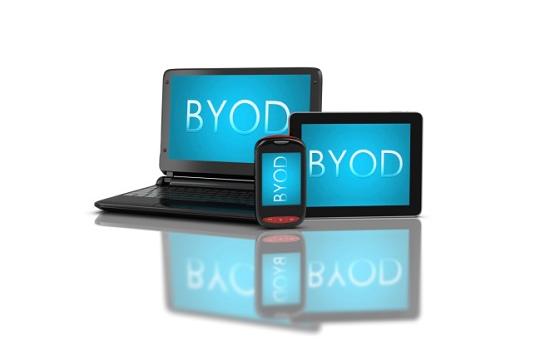Nick Williams doesn't want to bore you with yet another list of the security issues surrounding BYOD. So here's some advice on some of the issues you may not have thought about yet.
According to market research by Gartner Inc, by 2016 it is predicted that almost four in 10 organisations will rely on 'Bring Your Own Device' (BYOD) exclusively and that 85% of businesses will have some kind of BYOD policy in place by 2020.
BYOD has become increasingly popular in many workplaces, from a wide range of industries, with small and medium sized businesses at the forefront of the trend. Whilst BYOD provides businesses with a number of benefits including lower costs, increased flexibility and improved productivity, many still worry about the security of their business data.
If you have been considering implementing a BYOD policy at work, it is likely that you’ve already read all there is to know about security issues, so instead of boring you with yet another list, we thought we’d share six BYOD issues that are not related to security – some of which you probably haven’t even thought of!

Data segregation
Keeping both personal files and business data on one single device can prove to be troublesome. Firstly there is a risk that sensitive data could be lost or accidentally deleted if saved alongside a bunch of family photos. The second issue is that if your IT department decides the data needs to be wiped off a personal device (for security reasons) the individual’s personal files and photographs will be compromised too, which could lead to employees being very disgruntled and unhappy.
Potential to harm productivity
Although most business owners assume that BYOD will increase productivity, if you think about it, it actually has the potential to harm your productivity too. There is a reason why business devices are free from games, apps and videos. They are designed to be boring so that employees get on with their work without being distracted by notifications from a game they’ve downloaded, or a message on their social media app. By allowing employees to use their own personal devices in the workplace, there will always be the risk of distraction, which may harm your productivity levels.
Increases your IT departments' workload
Allowing your staff to use their own devices and gadgets in the workplace can be a real headache for your IT department. Aside from the problems associated with securing the devices, they will also be responsible for maintaining individual devices and ensuring new applications are compatible with the vast number of different makes and models. Increasing your IT departments' workload is either going to force you to hire another member of staff or pay them overtime, both of which defeat the object of BYOD being cost effective.
Licensing issues
Trying to manage the individual application licenses for individual devices is going to be time-consuming and complex. You will need to make sure that you have enough licences for all of your employees’ devices, which will quickly eat into the cost savings you are making by implementing a BYOD policy. There will also be the task of ensuring that your employees are all using the same version of the same software in order to achieve unified results – another time-consuming and costly task.
Application compatibility
If your employees are all using different devices and you decide to invest in a bespoke application or new piece of software, you are going to have to spend time making sure that the application or software is compatible with a long list of devices. The only real way to get around this is to limit the types of devices that employees are allowed to use in the workplace, though this could cause tension between your employees.
 6. Poor morale
6. Poor morale
There is a reason that schools make pupils wear the same uniform, and the same principal can be applied to employees in the workplace. Allowing employees to bring their own devices to work can create an uneven playing field and cause tension between members of staff. If one employee can afford to invest in state-of-the-art technology that enables them to get their work done quicker but other employees cannot, it is likely to make them resent you for implementing the policy.
Even if your productivity increases as a result of BYOD, it is not worth risking a negative effect on staff morale, as this will guarantee that your high levels of productivity will only be a short-term advantage. Providing your employees with the same device with the same applications may seem boring and traditional, but it will give all employees a fair advantage.
Conclusion
When it comes to weighing up the pros and cons of BYOD, security is not the only issue that you need to consider. It is equally as important to think about how the new policy will affect your workforce and whether it can really provide you with the long-term results you require.
Image credits: FotoBIB, lumaxart & lumaxart
Nick Williams works for Acuity Training, who provide hands-on professional training from their two UK offices. Nick works as an assistant on a number of courses including the intermediate and advanced SPSS training courses.









